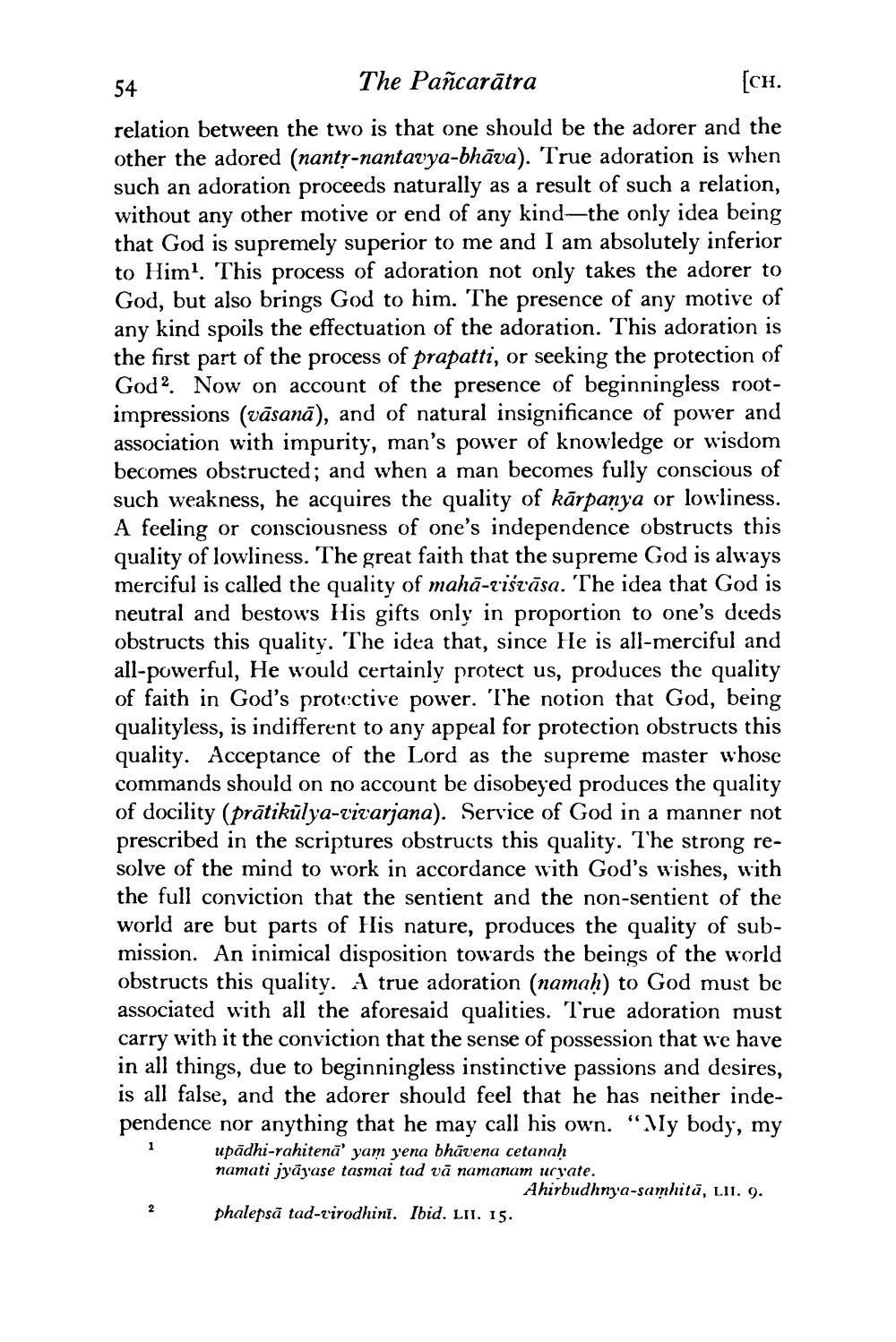________________
54
The Pañcaratra
[CH.
any
relation between the two is that one should be the adorer and the other the adored (nantṛ-nantavya-bhāva). True adoration is when such an adoration proceeds naturally as a result of such a relation, without other motive or end of any kind-the only idea being that God is supremely superior to me and I am absolutely inferior to Him'. This process of adoration not only takes the adorer to God, but also brings God to him. The presence of any motive of any kind spoils the effectuation of the adoration. This adoration is the first part of the process of prapatti, or seeking the protection of God. Now on account of the presence of beginningless rootimpressions (vāsanā), and of natural insignificance of power and association with impurity, man's power of knowledge or wisdom becomes obstructed; and when a man becomes fully conscious of such weakness, he acquires the quality of kārpaṇya or lowliness. A feeling or consciousness of one's independence obstructs this quality of lowliness. The great faith that the supreme God is always merciful is called the quality of mahā-viśvāsa. The idea that God is neutral and bestows His gifts only in proportion to one's deeds obstructs this quality. The idea that, since He is all-merciful and all-powerful, He would certainly protect us, produces the quality of faith in God's protective power. The notion that God, being qualityless, is indifferent to any appeal for protection obstructs this quality. Acceptance of the Lord as the supreme master whose commands should on no account be disobeyed produces the quality of docility (prātikūlya-vivarjana). Service of God in a manner not prescribed in the scriptures obstructs this quality. The strong resolve of the mind to work in accordance with God's wishes, with the full conviction that the sentient and the non-sentient of the world are but parts of His nature, produces the quality of submission. An inimical disposition towards the beings of the world obstructs this quality. A true adoration (namah) to God must be associated with all the aforesaid qualities. True adoration must carry with it the conviction that the sense of possession that we have in all things, due to beginningless instinctive passions and desires, is all false, and the adorer should feel that he has neither independence nor anything that he may call his own. "My body, my
upadhi-rahitena' yam yena bhāvena cetanaḥ
namati jyāyase tasmai tad vā namanam ucyate.
phalepsa tad-virodhini. Ibid. LII. 15.
2
Ahirbudhnya-samhitā, LII. 9.




